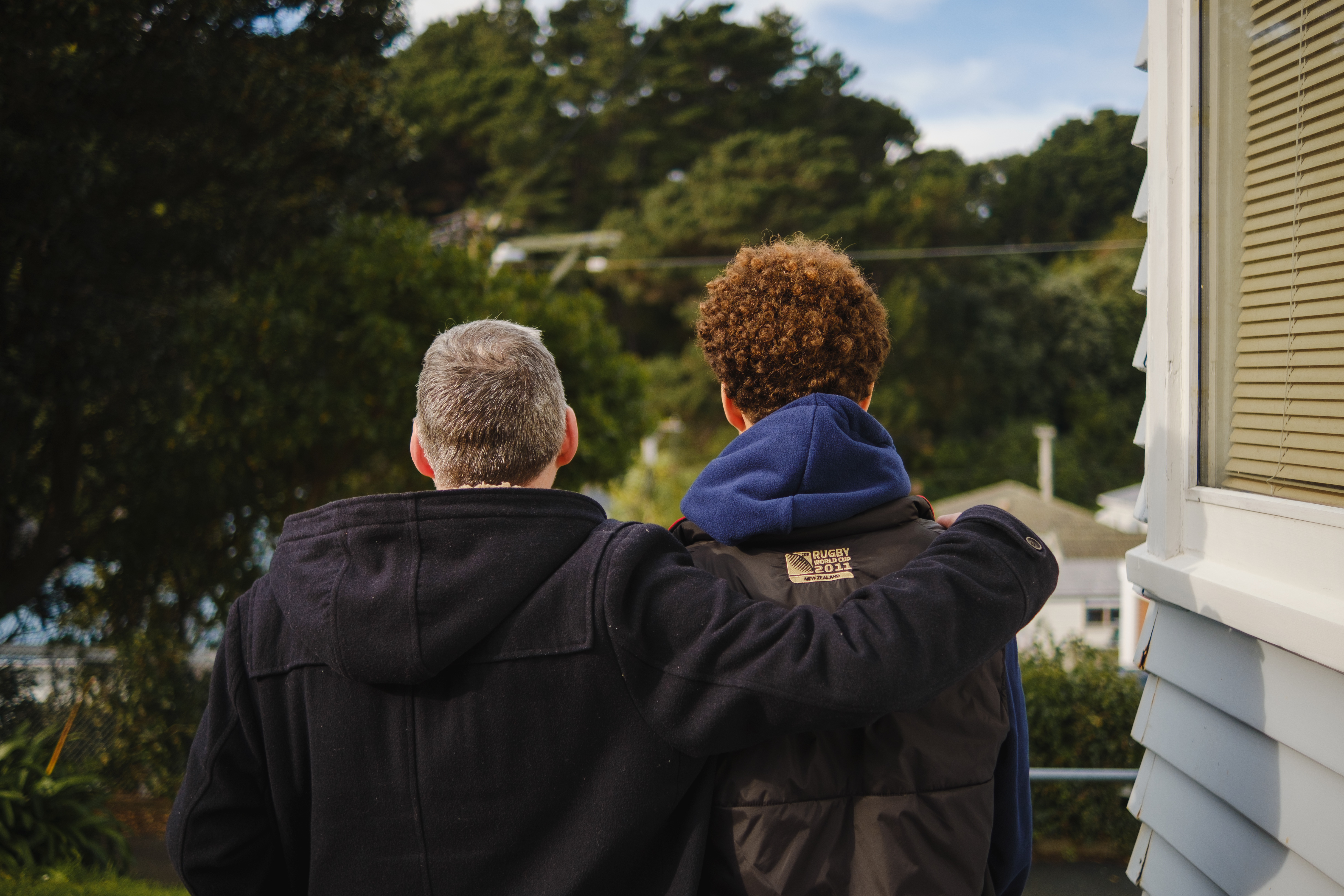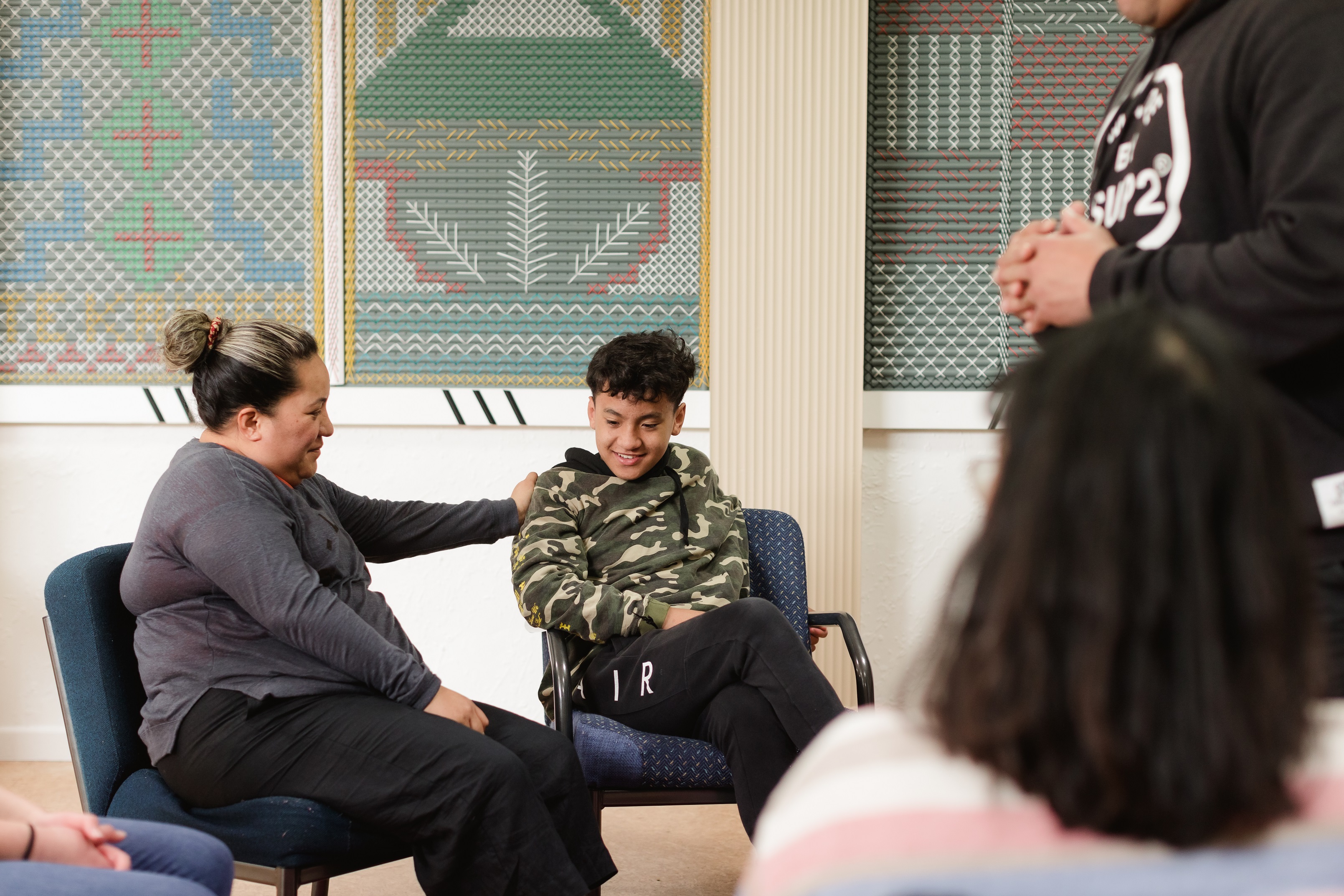Youth justice family group conferences
Youth justice family group conferences (FGCs) give the tamaiti or rangatahi – with their whānau, victims and professionals – a chance to help find solutions when they have offended.

If tamariki (aged 10 to under 14) and rangatahi (aged 14 to under 18) break the law, they’ll be referred to the youth justice system, rather than the adult jurisdiction. The youth justice process gives them a genuine opportunity to change their lives for the better without getting a criminal record.
Section 4A of the Oranga Tamariki Act 1989 requires practitioners working in Youth Justice to always think about 4 primary considerations when working with tamariki and rangatahi:
- the wellbeing and best interests of tamariki and rangatahi
- the public interest (including public safety)
- the interests of any victim
- the accountability of tamariki and rangatahi for their behaviour.
These considerations must be weighed against the youth justice principles in section 208 of the Act. This can present a challenge when, for example, what might be in the best interests of tamariki and rangatahi may not be appropriate, given the interests of the victim. Practitioners must always think about how the 4 considerations can be aligned for the best possible outcome for tamariki and rangatahi, their whānau and any victims of the offending.
One of our goals is to work with tamariki or rangatahi and their whānau as early as possible, to have a stronger focus on reducing the potential for lifelong offending. In partnership with others, we’ll work to prevent reoffending. Victims will also be better supported to fully participate in the youth justice process.
Youth justice family group conferences (YJ FGCs)
Youth justice family group conferences (YJ FGCs) give tamariki or rangatahi, with their whānau, victims and professionals, a chance to help find solutions when they have offended.
Together, with the whānau, victims, the Police and other people involved with the case, we can help the tamariki or rangatahi take responsibility for their actions to make lasting, positive changes. With everyone’s opinion and expertise accounted for, a thorough plan can be made to help right the wrong and ensure the future oranga of tamariki and rangatahi.
How an FGC works
The YJ FGC is arranged by a Youth Justice coordinator. They are there to help everyone get the most out of the meeting and to answer any worries or questions.
The following outlines the general structure of a YJ FGC:
- Tamariki or rangatahi start by owning up to what they have done.
- Together, we then work out the underlying reasons behind their actions. Why they did what they did.
- Victims are encouraged to attend the FGC and make their views known to the conference about how the offending affected them.
- The conference finds practical ways for tamariki or rangatahi to make amends for what they have done, like community service or getting a part-time job to help pay towards any damages. Any other needs, like anger management or alcohol and drug support, will also be addressed.
- Finally goals are set for the future such as:
- life skills
- education
- employment
- team sports
- getting them a good mentor.

I don't want to be like that when I'm older. I need something better.
Voices of young people
Stages of an FGC
Getting the facts
The police summary of facts (this describes the circumstances of the alleged offending) will be read out, and if the tamaiti or rangatahi agrees, everyone will discuss how they can make things right. If they don’t agree with the summary, the family group conference will end and the Police or the court will decide what to do next.
Time to talk
Everyone will discuss the circumstances of the offence and the impact it's had on the victim and the whānau of the tamaiti or rangatahi. The victim will then share their views and ideas about how the tamaiti or rangatahi can make things right.
Family time
Whānau and the tamaiti or rangatahi will take time out to come up with a clear, realistic plan to take back to others at the family group conference.
The plan
The plan is then discussed with the wider group, and if everyone can agree, then a legally binding plan is created and must be completed. This will rely on whānau and professionals providing ongoing support, working together, and keeping each other informed about progress and problems. If things go off track, the Youth Justice coordinator or social worker will talk to the whānau about what they can do to stick more closely to the plan.
If the conference is unable to agree on a plan, the matter is referred back to the Police or the Youth Court. This may result in a further FGC or the court making decisions about the offending.
What to expect
Why victims should attend
Making a plan
Who should attend?
Along with the victim and their support people, everyone who plays an important role in the life of the tamaiti or rangatahi, and others who might be able to offer support or services, should attend. This includes whānau, Police, the lawyer of the tamaiti or rangatahi and social worker, and other professionals such as teachers, kaiako or health workers.
A Youth Justice coordinator will organise the conference. They’ll be everyone’s main point of contact and support if there are any worries or questions.
How to prepare
Before the conference takes place consider:
- When and where should it be held?
- Are there special customs you or the whānau would like to include?
- Who in the whānau could play a lead role?
- Who could offer your tamaiti or rangatahi continued support?
It’s also important to gather those whānau members who are important to the tamaiti or rangatahi for the conference to help create a positive change for the rangatahi.
Help us get better
After the conference, we may ask for feedback. This helps us identify what’s working well and what can be improved. Ultimately, we want to make sure the whole process is a positive experience for everyone involved – especially the tamariki, rangatahi and the victims.
Published: March 13, 2017 · Updated: September 28, 2023

